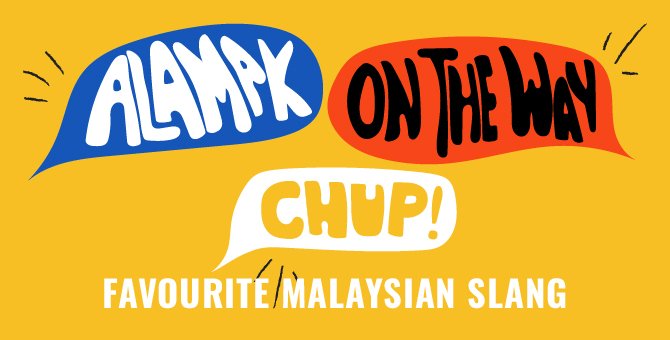When we chat in Malaysia, we don’t just speak standard words. We mix Malay, English, Chinese, and Tamil in fun ways. We use short slang words like “lah,” “meh,” and “sia.” To help speakers from other countries understand us, we must use smart English to Malay translation services. These experts help translate not just words but feelings in every “hai” and “apa cerita.”
Understanding “Lah” and Its Many Faces
The word “lah” shows emotion.
- “Okay lah” means “It’s fine.”
- “Don’t worry lah” means “Relax.”
When we translate, we don’t keep “lah.” We find a tone in English that matches. So “Okay lah” may become “Alright, no problem.” We lose “lah,” but the calm tone remains.
Translating “Meh” – The Tone of Doubt
“Meh” shows surprise or disbelief.
- “You bought that mechaz?”
- “Meh?”
We need to match that doubt. In English we might say, “Really?” or “Seriously?” That carries the same feeling without copying “meh.” A professional translation company will pick the right question word.
Converting “Sia” for Emphasis
“Sia” adds emotion like surprise, sadness, or excitement.
- “So sad sia” means “So sad.”
- “He so handsome sia” means “He’s really handsome.”
An expert translator may choose “so” or “very” to carry the same emphasis: “He’s really handsome.”
Matching Malaysian “Hello” and “Hi”
We say a quick “hai,” or “halo” with Malay tones. In English we might add, “Hey there!” or “Hi!” The energy changes slightly, but the warmth stays. This helps us greet locals with a friendly tone, even in translation.
Bringing Across “Apa Khabar?” Moments
“Apa khabar?” means “How are you?” But in Malay slang we add “bro” or “sis.”
- “Apa khabar bro?”
It’s casual and familiar.
To translate, we might say “How’s it going, bro?” or “You good, sis?” This keeps the tone light and friendly.
Conveying “Laju” Means Fast
We say “la…ju” or “la juh” sometimes, but “laju” means “fast.”
- “You drive laju.”
Is “You drive fast” in English. Nothing flashy, but it fits.
Translators match the meaning and keep sentences short and clear.
Translating “Camner” for “How?”
“Camner” means “How?”
- “Camner you do that?”
Becomes “How did you do that?”
We honor the question but remove slang in English. A smart translator picks the plain version so everyone understands.
Handling Mix of Malay and English (“Manglish”)
We say “Manglish” when we mix English:
- “I mahu makan now.”
- “Let’s lepak at mamak.”
A well-trained translator keeps “makan” as “eat” but may leave “lepak” with a footnote:
- “Let’s relax (lepak) at a mamak stall.”
A professional translation company may also include a glossary to explain local words.
Emphasizing with “Betui” (Real/Seriously)
“Betui” means serious or real: “You betui hungry?”In translation, “You really hungry?” We add “really” to keep the sense of “betui.” This keeps the question direct yet polite.
Translating “Pied” – To Ignore Someone
“Pied” means to ignore someone. “She pied me earlier.” In English, “She ignored me earlier.” Using the plain translation gives the same meaning. A translator ensures feelings are clear without weird slang.
Capturing Malaysian Politeness & “Please Lah”
We add “lah” for warmth, “Please lah, help me.” In English, we may say: “Please, okay?” or “Do help me, please.” A smart translation balances tone and politeness.
Keeping “Mamaks” and “Kiasu” in Context
Some words don’t translate well.
- “Mamak” means 24h eatery spots.
- “Kiasu” (Hokkien) means fear of losing out.
Translators may leave them in original and explain:
- “Mamak (a type of open-air eatery)”
- “He’s so kiasu (afraid to miss out).”
A professional translation company keeps meaning intact with short notes.
Using Native Pacing and Rhythm
Manglish sentences often go quickly, “You makan already or not?” In English we slow it down, “Have you eaten yet?” Timing and cadence matter. Translators help set the pacing so it feels natural for children too.
Translating Cultural Humor and Jokes
Slang can be funny, “Lah, why you so like that?”.It teases softly. In translation: “Hey, why you like that?” We keep the playful poke with tone, not exact slang.
Keeping Vocabulary Easy for Kids
We choose simple words:
- “Eat” instead of “dine.”
- “Help” instead of “assist.”
- “Bad” instead of “negative.”
This keeps the tone clear for young readers.
Ensuring Cultural Respect in Tone
Malay includes small levels of politeness. Adults expect a calm tone. We say “awak” or “anda” instead of “you.” In translation we use “you” but follow with soft phrases: “Could you please help me?” A translator ensures the tone is kind and respectful.
Testing with Native Speakers
After translation, we test with Malaysian readers. We see: Do they laugh at jokes? Do they feel honored in greeting lines? Their feedback helps us refine the translation for real life.
Why Slang Translation Matters
Cross-cultural apps and books need to feel local. Slang is part of living language. Loose translation loses tone. Precise work lifts text into feeling. A friendly tone keeps interest. It builds trust and helps learning.
Final Words!
Translating Malaysian slang and greetings is like drawing a smile. It goes beyond words. It carries feeling, warmth, teasing, and care. With help from English to Malay translation services and support from a translation company, we can turn slang into warmth that children and adults understand. That way, everyone laughs, shares, and connects, no matter where they come from.

